"Among all civilized people bread has become an article of food of the first necessity; and properly so, for it constitutes of itself a complete life sustainer, the gluten, starch and sugar which it contains representing ozotized and hydro-carbonated nutrients, and combining the sustaining powers of the animal and vegetable kingdoms in one product. As there is no one article of food that enters so largely into our daily fare as bread, so no degree of skill in preparing other articles can compensate for lack of knowledge in the art of making good, palatable and nutritious bread." Sourdough has quickly gone from a little-known bread species to a household word. Sourdough-only bakeries pop up in our towns, sourdough loaves populate grocery shelves, and the product is touted everywhere as being both a healthier and more historical bread. As a bread-baker myself as well as a historian, I too have found myself researching the subject. After all, not only do I turn out many a crusty loaf in my own kitchen, but so do some of my characters, from Phebe in The Letter to Dorota in Through the Darkness - including Margaret's rejected slices in In the Family Way! So, did Phebe Kavanaugh, Rozalia Hujar, Grace Burton, Margaret Westover, and Dorota Ondraski bake sourdough bread? Let's find out! Following a recent bread-baking video by historian and YouTube chef Jon Townsend, commenters revealed that a sourdough of sorts was indeed a staple bread for the poorer classes in Poland, but had some distinct differences. Firstly, the bread was made from rye flour; secondly, even though rye flour needs the lower pH and enzymes of wild yeast rather than brewer's yeast to rise, the starter was not like today's bubbly jar of watery sourdough. Polish housewives, like Rozalia's mother Apollonia Bartkowska, would take a small ball of dough from the batch they were making and bury it in their sack of flour to dry into a dehydrated starter. Next time they baked, this hardened ball would be dissolved in water and allowed to ferment for a day before making the next batch. So, sourdough or no? The jury is out on that one. In the late 1800s, the most popular cookbook was The White House Cook Book, first published in 1887 and an instant bestseller. By 1890, Margaret Westover (The House on Harmony Street) and Rose Burton and her daughter Grace King (Dunstan) would have used this book extensively. I searched its pages for the word sourdough or a sourdough-type process, but neither really appeared. Under 'General Directions', I found this information: "The yeast must be good and fresh if the bread is to be digestible and nice. Stale yeast produces, instead of vinous fermentation, an acetous fermentation, which flavors the bread and makes it disagreeable. A poor, thin yeast produces an imperfect fermentation, the result being a heavy unwholesome loaf... The first recipe for Wheat Bread only mentions yeast as an ingredient, but considering that you are using a 'teacupful' it is obviously a homemade yeast, not the one ounce of 'compressed yeast' in the next recipe, which is purchased at the grocery store. What follows are three recipes for yeast alone: Home-made Yeast, made from potatoes, hops, flour, water, sugar, ginger, salt, and premade yeast; Unrivaled Yeast, from hops, salt, brown sugar, flour, potatoes, and no previously made yeast - which, they assure us, has "an advantage" due to "its spontaneous fermentation, requiring the help of no old yeast"; and Dried Yeast Cakes, which is simply the first recipe allowed to dry and cut into cakes or crumbled (reminiscent of the Polish yeast balls). Two additional recipes are for Salt-Raising Bread, which has a starter fermented for only five hours, and Bread from Milk Yeast, a cornmeal and milk starter that ferments for less than twenty-four hours. Neither recipe has you save any of the starter for future batches; they are always made from scratch. Sourdough or no? Probably not, since the starters are mostly created from fresh ingredients, fermented for twenty-four hours or less, and none of it is saved for future recipes. The Unrivaled Yeast recipe mentions that you can store it for two months in a cool place, but only needs the bottle to be shaken before use.
Now, if you back up twenty years to the Civil War, in The Letter Arabella's sister-in-law Phebe brings freshly baked bread for lunch. Civil War Recipes: Receipts from the Pages of Godey's Lady's Book shows much the same process as the White House Cook Book: homemade yeast is created from hops, water and flour, sugar or molasses, and occasionally ginger, and used at once or bottled and tucked away to keep for up to two months with no additional care required. A teaspoon to a teacup of this 'soft yeast', as one recipe calls it, are added to bread, doughnut, and even pancake recipes. Sourdough or no? In terms of a starter that is nurtured, tended, and regularly added to, I would say no. Closer to the modern day, Dorota rushes her precious loaves of Polish bread into the Anderson shelter to keep them safe from an air-raid in Through the Darkness. Her bread would have been a white bread made with store-bought, non-instant yeast allowed to 'fizz' briefly in water and sugar during the baking process. Containing eggs and sugar or honey, it is a sweet bread similar to the Challah still baked today for the Sabbath, which Jewish bakers adapted from the bread their Christian Polish neighbors were baking for Sunday. Polish Sweet Bread or Egg Bread is a tender loaf with an unmatched soft and lightly sweet crumb. Often it is braided, twisted, and decorated. No wonder Dorota didn't want to risk it being destroyed in a bombing! Sourdough or no? Definitely not sourdough, as it is made from purchased dried yeast. There is no doubt that sourdough had a presence in the American West, as memorialized by Laura Ingalls Wilder in her award-winning Little House series, but it appears that it was far less popular than may be currently portrayed. However, making your own yeast was always recommended as the best way to make the best bread. Sourdough or not, early cooks were an independent bunch who recognized that the baking of bread was a time-honored process that could be made without any outside help as long as you had flour, water, and some type of sweetening to encourage the growth of bacteria from the air. And that is a spirit that all of us could benefit from, in a world where so many of our baked goods are made far away by mysterious processes in windowless factories. So, whether you buy your yeast from a store in a bag or in a packet, or grow it in a jar or a bowl in your own kitchen, I encourage you to bake up a batch and enjoy the work of your own hands!
0 Comments
It was in the second book of the Harmony Street Series, In the Family Way, that I first addressed the infamous Ohio educational laws of the late 1800s; and Dane Westover's opposition carries over into the third book, Home Fires. I knew that there were always those who distrusted the public school system, its purpose, and its success, and wanted the Westovers to illustrate that. The Report of the Commissioner of Education for the Year 1888-89, when summarizing the acceptance of the Ohio Compulsory Education Law, disparaged the reaction of such townships as Camden: "In the township districts the execution of the law has been far from universal. The boards of Education from a large portion of these districts have been slow to act, though a severe penalty is imposed for a failure to do so. While it is true that the cities and towns will, from the nature of things, derive the greatest benefit from the law, still in almost every subdistrict will be found parents greatly indifferent to the education of their children who will need the coercion of the law to bring them to a realizing sense of their duty. I would therefore recommend that the duty of bringing action to recover fines imposed under section 13 of the law be especially placed upon the prosecuting attorney of the county."
But not all parents who objected did so from indifference. Although I have read most of Louisa May Alcott's books, it was not until I began delving into this aspect of the era that I realized what a rabid homeschooler she really was, for a mainstream author contemporary to the time period. She recognized the issues rife in the traditional schoolroom, and was not afraid to point them out. “Ah, but vacation is not over, my dears,” said Mrs. Minot, hearing the last words as she came in prepared to surprise her family. “Glad of it. How much longer is it to be?” asked Jack, hoping for a week at least. “Two or three years for some of you.” “What?” cried all three, in utter astonishment, as they stared at Mamma, who could not help smiling, though she was very much in earnest. “For the next two or three years I intend to cultivate my boys' bodies, and let their minds rest a good deal, from books at least. There is plenty to learn outside of school-houses, and I don't mean to shut you up just when you most need all the air and exercise you can get. Good health, good principles, and a good education are the three blessings I ask for you, and I am going to make sure of the first, as a firm foundation for the other two.” “But, mother, what becomes of college?” asked Frank, rather disturbed at this change of base. “Put it off for a year, and see if you are not better fitted for it then than now.” “But I am already fitted: I've worked like a tiger all this year, and I'm sure I shall pass.” “Ready in one way, but not in another. That hard work is no preparation for four years of still harder study. It has cost you these round shoulders, many a headache, and consumed hours when you had far better have been on the river or in the fields. I cannot have you break down, as so many boys do, or pull through at the cost of ill-health afterward. Eighteen is young enough to begin the steady grind, if you have a strong constitution to keep pace with the eager mind. Sixteen is too young to send even my good boy out into the world, just when he most needs his mother's care to help him be the man she hopes to see him.” Mrs. Minot laid her hand on his shoulder as she spoke, looking so fond and proud that it was impossible to rebel, though some of his most cherished plans were spoilt. “Other fellows go at my age, and I was rather pleased to be ready at sixteen,” he began. But she added, quickly,-- “They go, but how do they come out? Many lose health of body, and many what is more precious still, moral strength, because too young and ignorant to withstand temptations of all sorts. The best part of education does not come from books, and the good principles I value more than either of the other things are to be carefully watched over till firmly fixed; then you may face the world, and come to no real harm. Trust me, dear, I do it for your sake; so bear the disappointment bravely, and in the end I think you will say I'm right.” “I'll do my best; but I don't see what is to become of us if we don't go to school. You will get tired of it first,” said Frank, trying to set a good example to the others, who were looking much impressed and interested. “No danger of that, for I never sent my children to school to get rid of them, and now that they are old enough to be companions, I want them at home more than ever. There are to be some lessons, however, for busy minds must be fed, but not crammed; so you boys will go and recite at certain hours such things as seem most important. But there is to be no studying at night, no shutting up all the best hours of the day, no hurry and fret of getting on fast, or skimming over the surface of many studies without learning any thoroughly.” “So I say!” cried Jack, pleased with the new idea, for he never did love books. “I do hate to be driven so I don't half understand, because there is no time to have things explained. School is good fun as far as play goes; but I don't see the sense of making a fellow learn eighty questions in geography one day, and forget them the next.” “What is to become of me, please?” asked Jill, meekly. “You and Molly are to have lessons here. I was a teacher when I was young, you know, and liked it, so I shall be school-ma'am, and leave my house-keeping in better hands than mine. I always thought that mothers should teach their girls during these years, and vary their studies to suit the growing creatures as only mothers can.” (Jack and Jill, 1880) Even her more conventional mamas had not a qualm about their children forsaking the schoolhouse for short or long periods of time (Amy never does return to a schoolroom, to my knowledge). He did not soon forget the reproachful glance Amy gave him, as she went, without a word to any one, straight into the ante-room, snatched her things, and left the place "forever," as she passionately declared to herself. She was in a sad state when she got home; and when the older girls arrived, some time later, an indignation meeting was held at once. Mrs. March did not say much, but looked disturbed, and comforted her afflicted little daughter in her tenderest manner. Meg bathed the insulted hand with glycerine and tears; Beth felt that even her beloved kittens would fail as a balm for griefs like this; Jo wrathfully proposed that Mr. Davis be arrested without delay; and Hannah shook her fist at the "villain," and pounded potatoes for dinner as if she had him under her pestle. ... "Yes, you can have a vacation from school, but I want you to study a little every day, with Beth," said Mrs. March, that evening. "I don't approve of corporal punishment, especially for girls. I dislike Mr. Davis's manner of teaching, and don't think the girls you associate with are doing you any good, so I shall ask your father's advice before I send you anywhere else." (Little Women, 1868) And not just the mamas alone, either. Louisa's most famous mentor, Uncle Alec of Eight Cousins (1874) and Rose in Bloom (1876) had pretty strong feelings about schools in general. “My dear boy, we did what we thought best while waiting for you to wind up your affairs and get home. I always told George he was wrong to bring her up as he did; but he never took my advice, and now here we are with this poor dear child upon our hands. I, for one, freely confess that I don't know what to do with her any more than if she was one of those strange, outlandish birds you used to bring home from foreign parts.” And Aunt Plenty gave a perplexed shake of the head which caused great commotion among the stiff loops of purple ribbon that bristled all over the cap like crocus buds. “If my advice had been taken, she would have remained at the excellent school where I placed her. But our aunt thought best to remove her because she complained, and she has been dawdling about ever since she came. A most ruinous state of things for a morbid, spoilt girl like Rose,” said Mrs. Jane, severely. She had never forgiven the old ladies for yielding to Rose's pathetic petition that she might wait her guardian's arrival before beginning another term at the school, which was a regular Blimber hot-bed, and turned out many a feminine Toots. “I never thought it the proper school for a child in good circumstances an heiress, in fact, as Rose is. It is all very well for girls who are to get their own living by teaching, and that sort of thing; but all she needs is a year or two at a fashionable finishing school, so that at eighteen she can come out with eclat,” put in Aunt Clara, who had been a beauty and a belle, and was still a handsome woman. ... “Now, it is my opinion that the dear thing only wants freedom, rest, and care. There is look in her eyes that goes to my heart, for it shows that she feels the need of what none of us can give her a mother,” said Aunt Jessie, with tears in her own bright eyes at the thought of her boys being left, as Rose was, to the care of others. Uncle Alec, who had listened silently as each spoke, turned quickly towards the last sister, and said, with a decided nod of approval, “You've got it, Jessie; and, with you to help me, I hope to make the child feel that she is not quite fatherless and motherless.” He not only disliked the format, he found the results disappointing, as well. Uncle Alec was still knitting his brows over the list of books, and sternly demanded, pointing to a tipsy-looking title staggering down the page, “Is that meant for 'Pulverized Bones,' ma'am?” “No, sir; it's 'Paradise Lost.'” “Well, I'm glad to know it, for I began to think you were planning to study surgery or farming. And what is this, if you please? 'Babies' Aprons' is all I can make of it.” Rose looked hard at the scrawl, and presently announced, with an air of superior wisdom, “Oh, that's 'Bacon's Essays.'” “Miss Power did not teach anything so old-fashioned as writing, I see. Now look at this memorandum Aunt Plenty gave me, and see what a handsome plain hand that is. She went to a dame-school and learnt a few useful things well; that is better than a smattering of half a dozen so-called higher branches, I take the liberty of thinking.” “Well, I'm sure I was considered a bright girl at school, and learned everything I was taught. Luly and me were the first in all our classes, and 'specially praised for our French and music and those sort of things,” said Rose, rather offended at Uncle Alec's criticism. “I dare say; but if your French grammar was no better than your English, I think the praise was not deserved, my dear.” “Why, uncle, we did study English grammar, and I could parse beautifully. Miss Power used to have us up to show off when people came. I don't see but I talk as right as most girls.” “I dare say you do, but we are all too careless about our English. Now, think a minute, and tell me if these expressions are correct 'Luly and me,' 'those sort of things,' and 'as right as most girls.'” Rose pulled her pet curl and put up her lip, but had to own that she was wrong, and said meekly, after a pause which threatened to be sulky, “I suppose I should have said 'Luly and I,' in that case, and 'that sort of things' and 'rightly,' though 'correctly' would have been a better word, I guess.” “Thank you; and if you will kindly drop 'I guess,' I shall like my little Yankee all the better. Now, see here, Rosy, I don't pretend to set myself up for a model in anything, and you may come down on my grammar, manners or morals as often as you think I'm wrong, and I'll thank you. I've been knocking about the world for years, and have got careless, but I want my girl to be what I call well-educated, even if she studies nothing but the three 'Rs' for a year to come. Let us be thorough, no matter how slowly we go.” He spoke so earnestly and looked so sorry to have ruffled her that Rose went and sat on the arm of his chair, saying, with a pretty air of penitence, “I'm sorry I was cross, uncle, when I ought to thank you for taking so much interest in me. I guess no, I think you are right about being thorough, for I used to understand a great deal better when papa taught me a few lessons than when Miss Power hurried me through so many. I declare my head used to be such a jumble of French and German, history and arithmetic, grammar and music, I used to feel sometimes as if it would split. I'm sure I don't wonder it ached.” And she held on to it as if the mere memory of the “jumble” made it swim. “Yet that is considered an excellent school, I find, and I dare say it would be if the benighted lady did not think it necessary to cram her pupils like Thanks-giving turkeys, instead of feeding them in a natural and wholesome way. It is the fault with most American schools, and the poor little heads will go on aching till we learn better.” This was one of Dr. Alec's hobbies, and Rose was afraid he was off for a gallop, but he reined himself in. It is fascinating that a 'progressive' woman like Alcott had this critical view of public and private schools and their ability (or lack thereof) to teach America's children (in her little-known book, Behind a Mask, she even points out the dangers of bringing strangers into your home to teach your children in the form of tutors and governesses). Now, imagine what her thoughts would have been had she lived just five years longer to see states like Ohio embracing such a severe enforcement of compulsory school laws! Insult was added to injury that a parent would be forced to keep their child in a failing system - and it was failing under teachers like Miss Morris, trained in the ways of Horace Mann, the man who destroyed America's school and educational system (you can read a brief but sobering summary of his doings here). Alcott's contemporary critisicms of current education makes me feel sure that Dane Westover's strong convictions in regards to education are as much a reflection of the times as Ma Ingalls' insistence that her own girls be in a schoolroom - any schoolroom, with any teacher! - rather than be taught by herself, who had been a schoolteacher. As a homeschool graduate and a passionate supporter of home education in general, it was heartwarming and eye-opening to realize that there were always those who recognized the dangers of the compulsory school movement that would soon take the whole country in an iron grip, not to be released for many decades - and even more interesting to find one of them to be such a well-known author of the times! History is amazing. ❤️ Now available on Amazon as Kindle or paperback!
New Year's Day, 1892, marks the start of a cozy winter for the house at 25 Harmony Street, where local sheriff Dane Westover and his wife Margaret are raising their big, chaotic family. But while the Westovers are making friends with their charming new neighbors, the recently hired schoolteacher lights flames of controversy throughout the town. When a desperate and needy thief begins to affect the lives of people in both Camden and Bordenville, Dane and his brothers must call up all their courage and skill to keep their family safe and the home fires burning. London authorities are investigating what could be a case of food contamination at The Tavern after an elderly male resident experienced some strange symptoms following a recent meal there. Ebenezer Scrooge, age unknown, had his usual evening order at The Tavern on the night of December 24th and experienced several hours of hallucinations, remaining somewhat disoriented upon waking the next morning. At nine o’ clock AM Christmas day, he was seen in his bedroom window, still dressed in pajamas and nightcap, hailing passersby and asking them what day it was. “He wanted me to buy a turkey,” a young resident recalled, who declined to give his name. “Of course, I said, ’Walk-ER!’ but it didn’t affect him at all. He seemed nice enough: called me a remarkable boy, and paid right up for the turkey when I brought the man around with it.” Health officials are conducting an inspection of the tavern kitchen for hallucinogenic substances, but Scrooge has declined to press charges if they discover any. “I am not the man I was,” he told reporters. “I will not be the man I must have been but for this intercourse. I will honour Christmas in my heart, and try to keep it all the year. Heaven, and the Christmas Time be praised for this! I say it on my knees, old Jacob; on my knees!” Robert Cratchit of Camden Town, long time employee of Scrooge & Marley’s, admitted that he has found his boss’ behavior altered since the incident. “I had a momentary idea of knocking Scrooge down with the ruler; holding him; and calling to the people in the court for help and a strait-waistcoat,” he said, referring to his first experience with Scrooge at the office on the morning of December 26th. “But then he told me he was going to raise my salary and endeavor to assist my struggling family, so I think he has actually come to his senses!” Scrooge continues to have mild symptoms which baffle doctors. “I am as light as a feather, I am as happy as an angel. I am as merry as a schoolboy. I am as giddy as a drunken man,” Scrooge reported. Medical personnel at the local hospital will continue monitoring Scrooge to grow understanding of his condition. A new kind of book review? If you would enjoy more news story book reviews, let me know in the comments below!
Treasures of Darkness is now ready for purchase here on the bookstore! Get your copy now, hot off the presses!
I'm so pleased to introduce you to Treasures of Darkness, the long-awaited sequel to Lighten Our Darkness! It is now available on Kindle and in paperback (and coming soon to the bookstore here). If you loved - or even liked - Lighten Our Darkness, this is a book you don't want to miss. Besides a check-up on some old friends, you'll get to meet all sorts of new characters!
Jozef - All right, you sort of know Jozef. Jedrick mentions him several times, and you've 'seen' his photograph with Helen, and heard about his humor and his bravery. But you haven't really met him - until now! Waclaw - Waclaw is a newbie, even for me! But once I'd found him, I couldn't let him go! He's just such a winsome fellow. Ignace - That's not Jedrick and Jozef's father, Ignace. This is a blue-eyed, blond-haired little chap who takes a flying leap into the story and just won't leave... Dorota, Krysia, Lucia, Ela, & Kasia - You've heard about Stanislaw's sisters, but it's time for you to meet them. From steady, dependable Dorota to cheerful Kasia, I think you're going to love them. Ludwik - He's central to the story, and you can't do without him. Ludwik, old man, you do you (well, actually, we'd rather you didn't). And there's so many more! Get your copy today to catch up on all the important happenings in Treasures of Darkness! Jozef Ondraski, a first lieutenant in the Polish cavalry during WWII, finds himself without country, family, or home, as Nazi Germany takes over every aspect of life. When he decides to make his way to England to offer his services as a translator to the Polish Government in Exile in London, he must take a perilous journey through enemy territory. Through it all, he makes new friends, suffers from injury and illness, and learns to reach out for the unseen Hand of God. But nothing can prepare him for the unexpected surprises that await him in the bombed and battered streets of London...
I heard a song today. As the sweet strains of 'Believe Me, If All Those Endearing Young Charms', played charmingly on flute and piano, filled the air, I took a journey down memory lane. I could see the green banks of Polecat Creek and hear the trickle of the water; I could picture a young girl sinking down on the ground, her water-splattered white skirts spread out about her. She was exhausted from her journey over a shaky single log, and tearful with the fright of the crossing, and around her stood a group of embarrassed young men, unsure how to comfort her. It brought a smile to my lips, remembering. I've been going to Polecat Creek regularly for years, always in the company of Martitia Howland and the Gardner brothers, and I've always enjoyed it immensely - despite timid Martitia's distress in having to cross it on a log!
Is there a Polecat Creek? Well, I don't know. I suspect it is pure invention. But whenever I hear 'Believe Me, If All Those Endearing Young Charms', I think of They Loved To Laugh and remember the lovely times I've spent reading about Martitia and the Gardners. It's as if I really visited the creek, or stood on the porch of the hip-roofed house and watched Jonathan stand on his head, or sat in the kitchen and smelled the fresh-baked bread. And that's the best part of books. You can travel across the world, or back through time; you can visit a summer creek in the midst of winter, or shiver through a blizzard in the heat of summer. And once you've been somewhere, it becomes part of you, just like a hands-on experience. It stays with you. And all you have to do is smell a scent, or hear the strains of an old, sweet song... 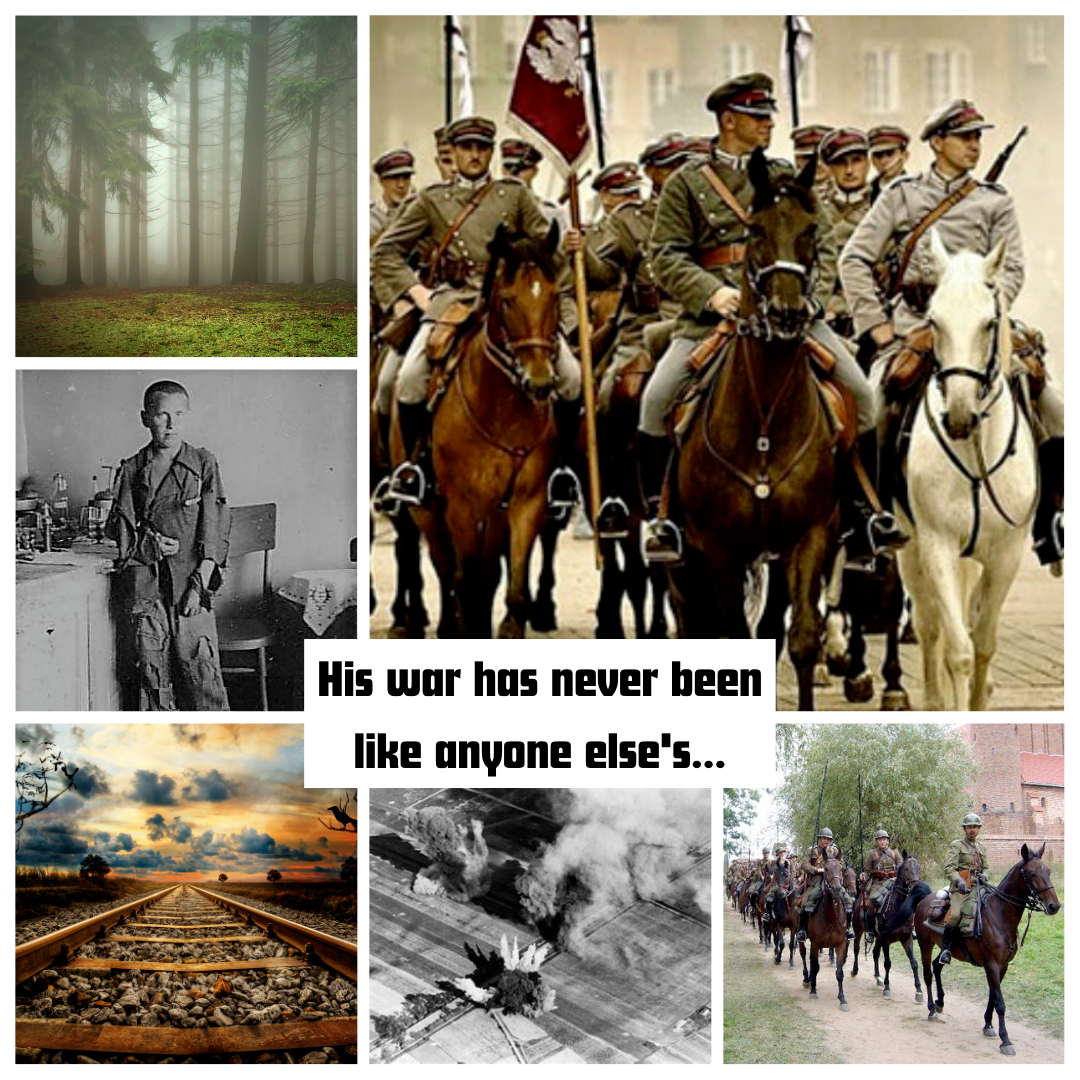 Do you mean you will accept the position?” he asked hopefully. “Yes, of course. When can I start?” His face lit up. “That’s good news! As soon as you like. Today isn’t too early for me, if I only thought we could make that bedroom presentable for you.” “I’m afraid that’s a little soon for me,” said Margaret, smiling. “I still need to pack up and settle with my landlady. Tomorrow? I can come about nine and get settled in, if you don’t mind a simple dinner.” “We’ve had so many failed dinners lately, I’m sure the simplest of meals would satisfy us,” Dane answered with a chuckle. “All right, let’s draw up the contract.” |
AuthorSarah Brazytis - Christian, Historian, Author. In that order. Sarah’s quotes"Stefan!" shouted Casimir. "What are you doing, out in the rain with that girl? Madman!" As Stefan raised his head, Rozalia heard her aunt's bubbling laughter. "Not a madman, Cass - a lover!" "Same thing," said Casimir; but he put an arm around Anastasia where she stood holding the baby, and kissed her."— Sarah Brazytis Archives
July 2024
Categories |




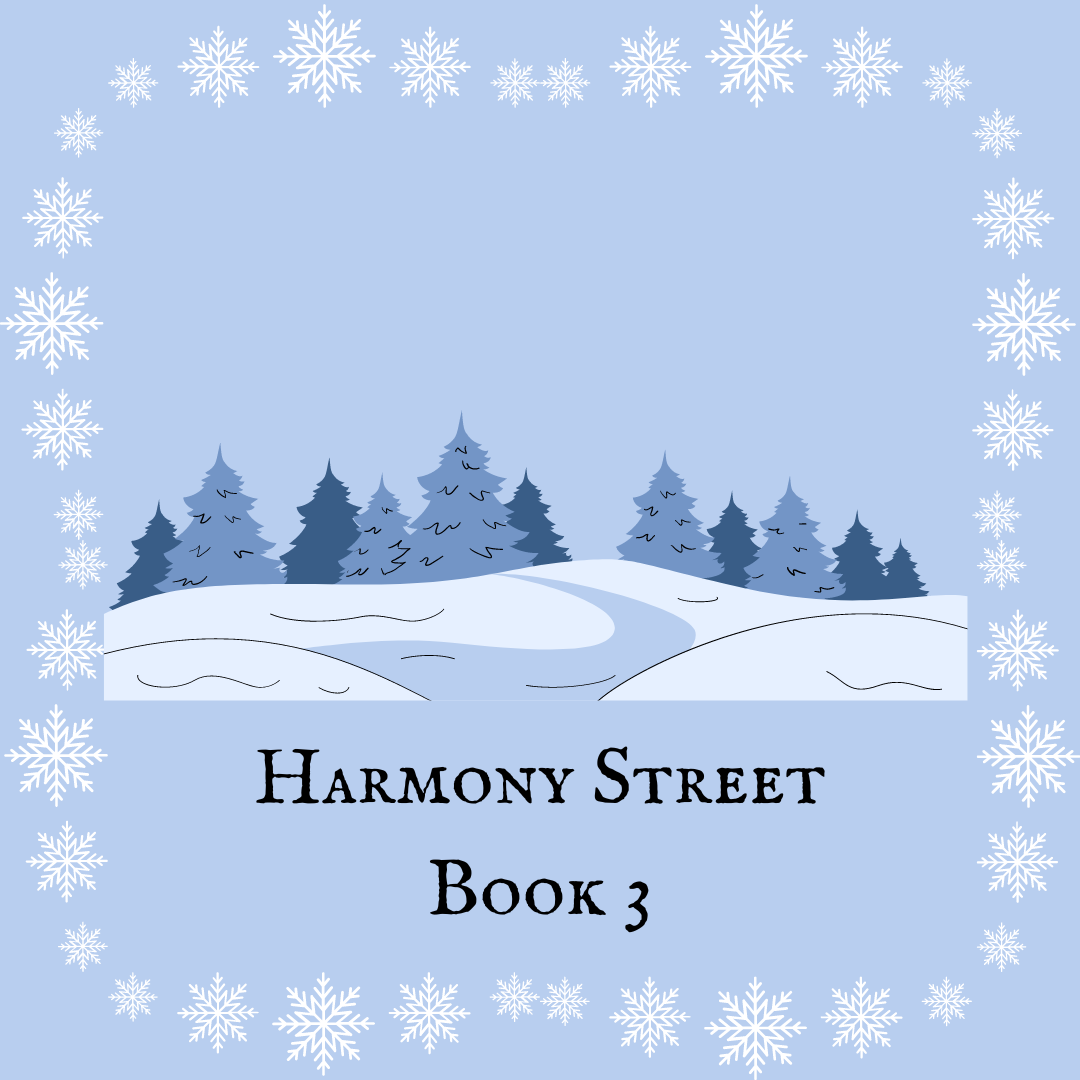
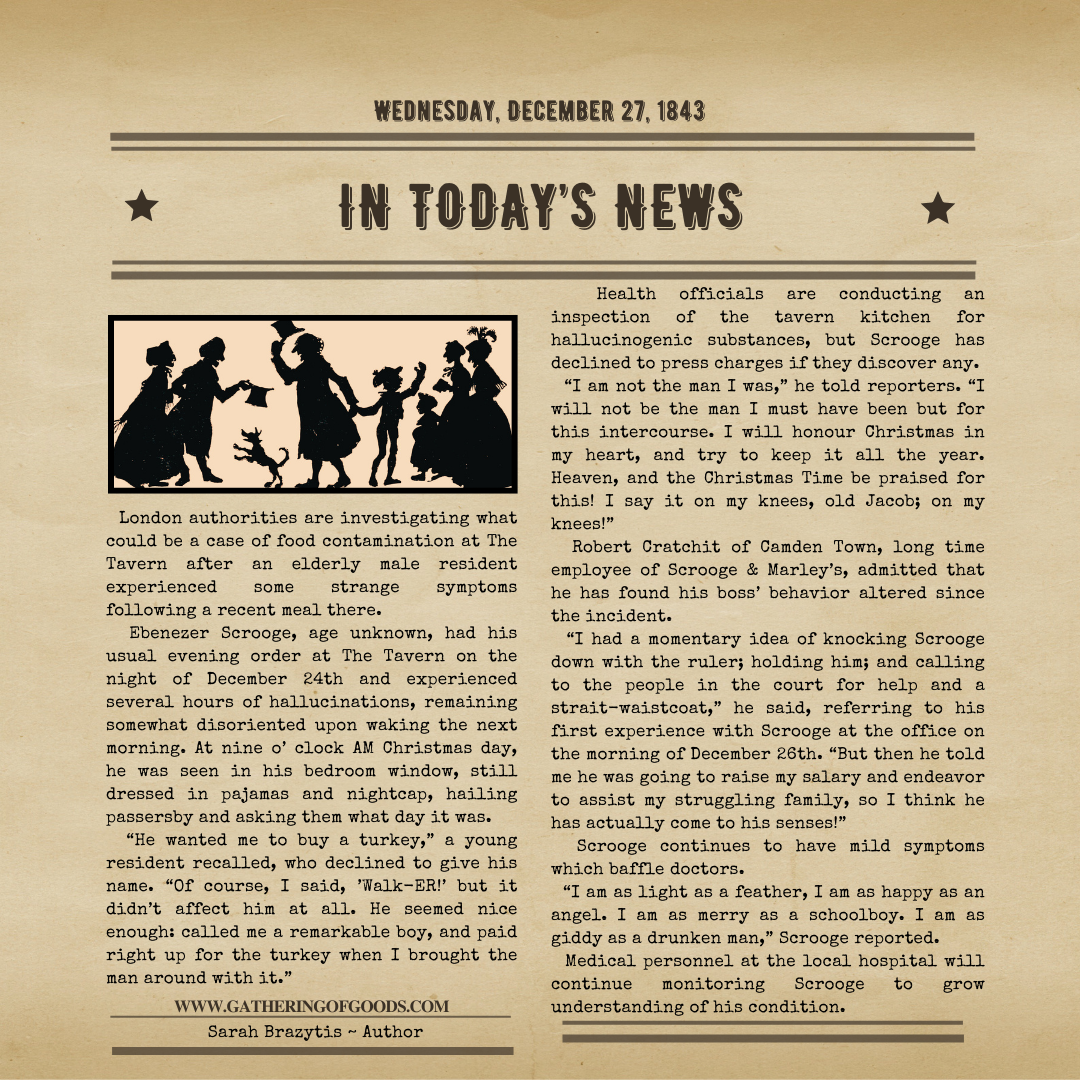
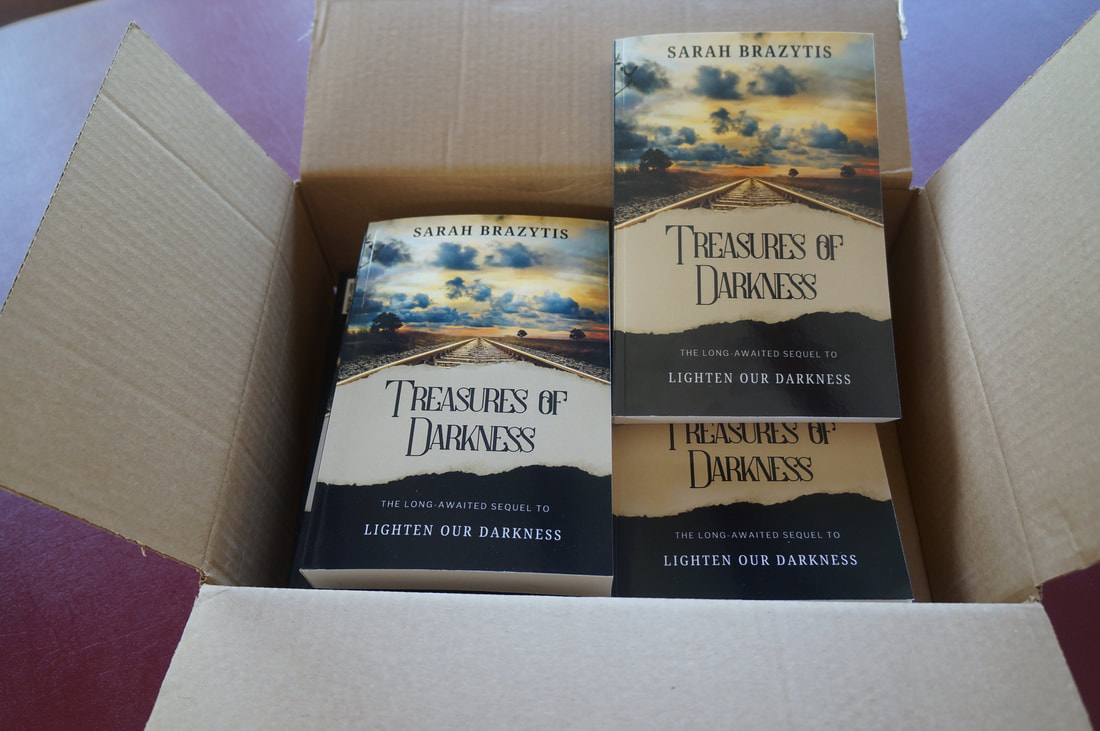



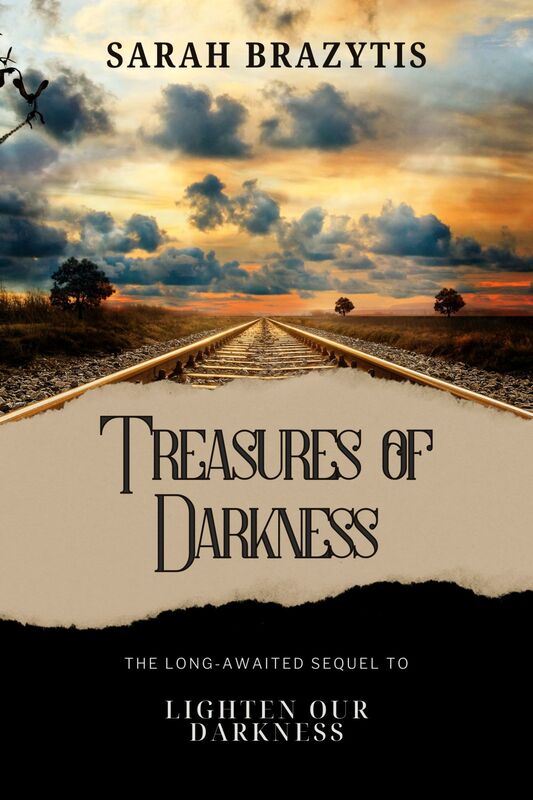



 RSS Feed
RSS Feed